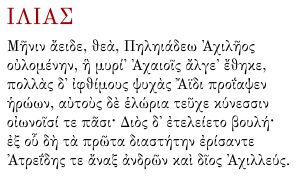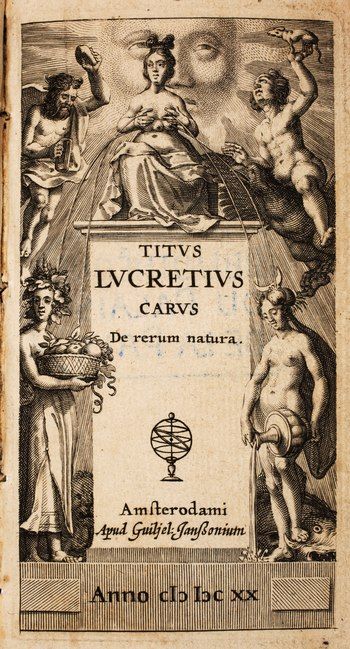Portal:Poetry
Welcome to the Poetry Portal


Poetry (from the Greek word poiesis, "making") is a form of literary art that uses aesthetic and often rhythmic qualities of language to evoke meanings in addition to, or in place of, literal or surface-level meanings. Any particular instance of poetry is called a poem and is written by a poet.
Poets use a variety of techniques called poetic devices, such as assonance, alliteration, euphony and cacophony, onomatopoeia, rhythm (via metre), and sound symbolism, to produce musical or other artistic effects. They also frequently organize these effects intos, which may be strict or loose, conventional or invented by the poet. Poetic structures vary dramatically by language and cultural convention, but they often use rhythmic metre (patterns of syllable stress or syllable (mora) weight). They may also use repeating patterns of phonemes, phoneme groups, tones (phonemic pitch shifts found in tonal languages), words, or entire phrases. These include consonance (or just alliteration), assonance (as in the dróttkvætt), and rhyme schemes (patterns in rimes, a type of phoneme group). Poetic structures may even be semantic (e.g. the volta required in a Petrachan sonnet).
Most written poems are formatted in verse: a series or stack of lines on a page, which follow the poetic structure. For this reason, verse has also become a synonym (a metonym) for poetry. (Full article...)
Selected article

A villanelle, also known as villanesque, is a nineteen-line poetic form consisting of five tercets followed by a quatrain. There are two refrains and two repeating rhymes, with the first and third lines of the first tercet repeated alternately at the end of each subsequent stanza until the last stanza, which includes both repeated lines. The villanelle is an example of a fixed verse form. The word derives from Latin, then Italian, and is related to the initial subject of the form being the pastoral.
The form started as a simple ballad-like song with no fixed form; this fixed quality would only come much later, from the poem "Villanelle (J'ay perdu ma Tourterelle)" (1606) by Jean Passerat. From this point, its evolution into the "fixed form" used in the present day is debated. Despite its French origins, the majority of villanelles have been written in English, a trend which began in the late nineteenth century. The villanelle has been noted as a form that frequently treats the subject of obsessions, and one which appeals to outsiders; its defining feature of repetition prevents it from having a conventional tone. (Full article...)
Selected image
Poetry WikiProject

Selected biography
Maya Angelou (/ˈmaɪ.ə ˈændʒəloʊ/; born Marguerite Annie Johnson; April 4, 1928 – May 28, 2014) was an African-American author, poet, dancer, actress, and singer. She published seven autobiographies, three books of essays, and several books of poetry, and was credited with a list of plays, movies, and television shows spanning more than 50 years. She received dozens of awards and over fifty honorary degrees. Angelou is best known for her series of seven autobiographies, which focus on her childhood and early adult experiences. The first, I Know Why the Caged Bird Sings (1969), tells of her life up to the age of seventeen and brought her international recognition and acclaim.
She became a poet and writer after a series of occupations as a young adult, including fry cook, prostitute, nightclub dancer and performer, cast member of the opera Porgy and Bess, coordinator for the Southern Christian Leadership Conference, and journalist in Egypt and Ghana during the decolonization of Africa. She was an actor, writer, director, and producer of plays, movies, and public television programs. From 1982, she taught at Wake Forest University in Winston-Salem, North Carolina, where she held the first lifetime Reynolds Professorship of American Studies. She was active in the Civil Rights Movement, and worked with Martin Luther King Jr. and Malcolm X. Beginning in the 1990s, she made around 80 appearances a year on the lecture circuit, something she continued into her eighties. In 1993, Angelou recited her poem "On the Pulse of Morning" (1993) at President Bill Clinton's inauguration, making her the first poet to make an inaugural recitation since Robert Frost at President John F. Kennedy's inauguration in 1961. (Full article...)
Did you know (auto-generated) -

- ... that Ephraim E. Lisitzky wrote an epic poem in Hebrew based on Native American legends?
- ... that Paul McCartney wrote a poem about Dumb Woman's Lane?
- ... that the 16th-century poet Fuzuli wrote a poetic letter titled "Complaint" after Ottoman officials cut his stipend?
- ... that Rabia Balkhi is the first known Persian woman poet?
- ... that Nirmalendu Goon shared his doubts about Sheikh Mujibur Rahman's political decisions during the 1969 East Pakistan mass uprising in his poem Huliya?
- ... that according to Charles Melville, the poet Hatefi implied that Timur was another Alexander the Great by making Timur the subject of the fourth poem of a quintet?
Selected poem
| A Hymn to God the Father by John Donne |
|---|
|
Wilt thou forgive that sin where I begun, |
Related portals
Topics
Recognized content
Categories
Associated Wikimedia
The following Wikimedia Foundation sister projects provide more on this subject:
-
Commons
Free media repository -
Wikibooks
Free textbooks and manuals -
Wikidata
Free knowledge base -
Wikinews
Free-content news -
Wikiquote
Collection of quotations -
Wikisource
Free-content library -
Wikiversity
Free learning tools -
Wiktionary
Dictionary and thesaurus






















